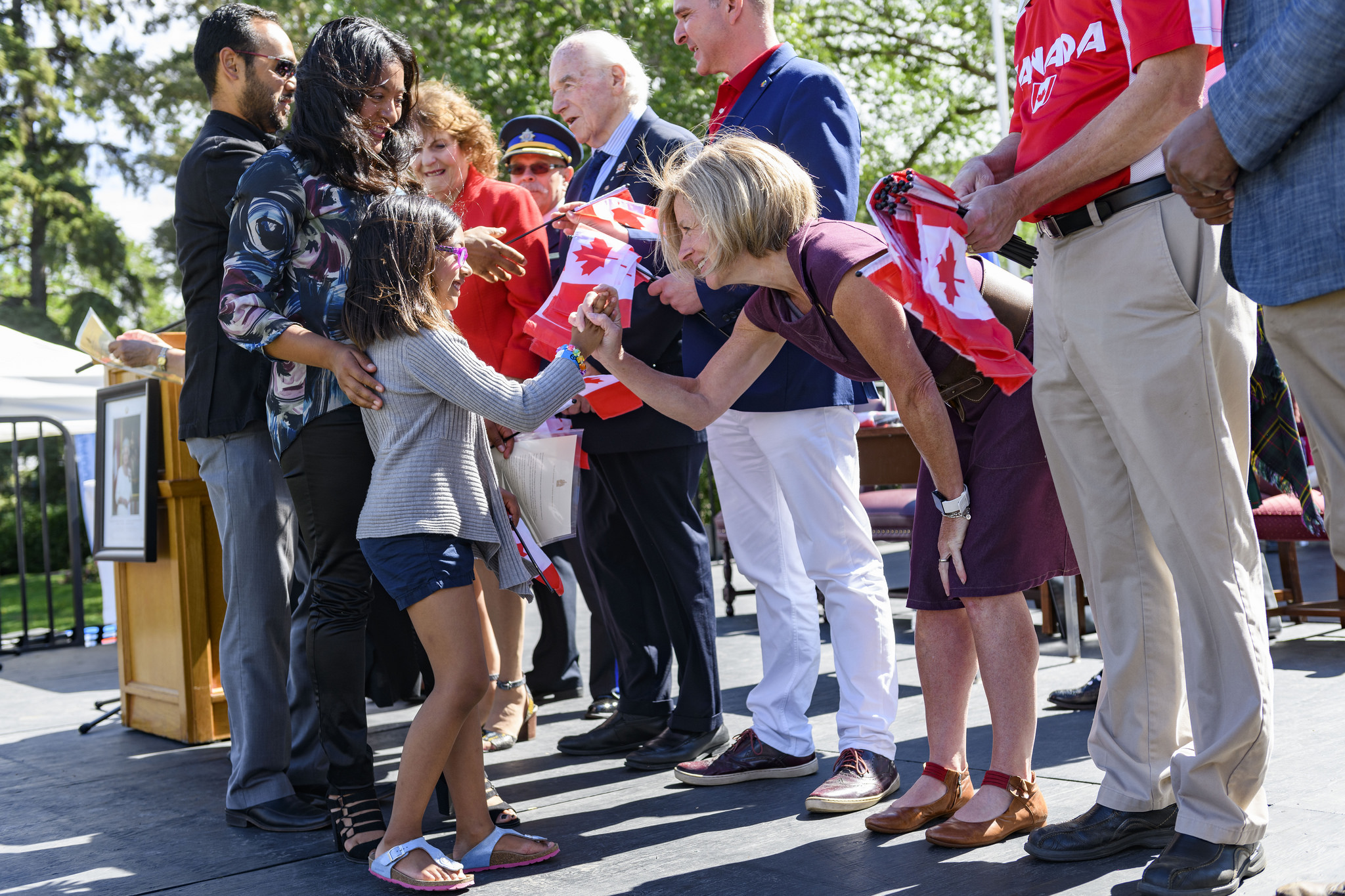Hot-Button Debate Over Immigration, Refugees Ignores Human Experience and Challenges
How easy is it to immigrate to Canada? How easy is it to make a refugee claim? With a federal election right around the corner, hot-button issues are becoming even more polarized and divisive.
Canada’s stances on immigration and refugees are no exception, generating high-profile demonstrations and reactions from various groups across the political spectrum.
Populist rhetoric around immigrants and refugees paint an inaccurate picture of Canada; one with a revolving door approach, ignorance of budgetary concerns, and a blind eye that lets anyone into the country as long as they apply and say the right things.
This approach completely ignores evidence and historical data; Canada’s system is remarkably strict despite an outwardly welcoming attitude. What’s more, Canada’s got some of the world’s most restrictive visa rules, especially for visitors.
The immigration system, for all the changes in attitude that came with the 2015 federal election, has remained largely the same as it was under the previous Conservative government. Much of the populist rhetoric around immigration within Canada conveniently ignores that the strong system of bureaucracy was maintained and, in some cases, strengthened by right-wing politicians.
But the most contentious issue, by far, remains irregular border crossings and unfounded accusations of complacency. With many asylum seekers crossing “illegally” at the Canada-US border, pundits and politicians have stoked anger and resentment that somehow these people are “jumping the queue.”
This could not be further from the truth.
CBC News recently hosted a town hall in Saskatchewan where many immigrants and refugees shared their stories. These stories demonstrate the emotional and psychological toll Canada’s immigration systems have on those who use them, and that, despite successes, it’s not an easy system to navigate.
One of the speakers at this town hall, Ponziano Aluma, fled Uganda in 1981, along with his wife. He spent six years in a South Sudan refugee camp before settling in Regina in 1987. His wife died in childbirth while in the camp, and his child soon after. Aluma commented on immigration critics, saying that they “have no clue what they’re talking about.”
“The reasons why they are against immigration is not so much that it’s being done illegally, it’s just because they don’t want the kind of people who come now,” said Aluma.
Aluma also touched on the very concept of illegal immigration, and how it often gets confused and misrepresented.
“What seems to be happening is that people are confusing legal migration with asylum seekers,” he said. “But when it comes to asylum seekers, we know the concept of legality is almost absurd.”
Aluma gave an example of a woman fleeing a violent spouse or partner running from their home and jumping the fence into your backyard, knocking at your door for safety. Would people tell this woman they should have entered through the gate?
People arrive in Canada by any means necessary, regardless of hardship. Aluma added that even the people who “jump the fence” must still deal with the Immigration and Refugee Board of Canada.
Victoria Tran was one of 11 siblings who, along with her parents, squeezed onto a boat in Vietnam in 1979 to flee the communist regime. The boat held 700 people, including the Trans, but was only designed to hold 300. The landed at a UN refugee camp in Malaysia where they spent the next 13 months before they were sponsored to go to Canada. Tran described this as “the best than that ever happened in [our] lives.”
Immigrants don’t necessarily enjoy a smooth transition, either. Patrick Fernandez applied for permanent residency in 2017 so he could join his wife in Regina. Navigating the system and working through the application process took longer than two years.
A successful artist in his native Philippines, Fernandez gave up his reputation and career and spent a long time rebuilding it in Regina. Fernandez commented that people aren’t aware of how much newcomers go through to come to Canada.
As for the concept that these newcomers are a burden on the Canadian taxpayer, it’s a myth. Aluma, a Ugandan refugee, now works as an income tax auditor with the federal government. He worked hard upon arriving to support his surviving family in Uganda, and with his wife (herself an immigrant from Vietnam) works to support both his extended family and hers.
“If I was not in Canada, I would not be able to do these things,” he said.
The fact of the matter is that immigration and refugee claims do guarantee entry to the country. Far from it, they’re the start of long, often challenging processes that require careful diligence and hard work.
Photo credit: “Premier Notley celebrates at the Canadian citizenship ceremony16” by Ian Jackson/Government of Alberta, is licensed by CC BY-ND 2.0
Share this article
Arghavan Gerami
Arghavan Gerami is the Founder and Senior Counsel at Gerami Law Professional Corporation ('PC'), a full-service immigration law firm in Ottawa, Ontario. Since 2011, Ms. Gerami has focused her practice on immigration and refugee litigation. Prior to that, Ms. Gerami worked at the Ministry of Attorney General and the Department of Justice and had the privilege of serving the Honourable Mr. Justice M. Evans at the Federal Court of Appeal on immigration and administrative law appeals. Ms. Gerami contributes to the Immigration Law Section of the Canadian Bar Association, the Canadian Association of Refugee Lawyers, and the United Nations High Commissioner for Refugees. Ms. Gerami has also published numerous journal articles and presented at various immigration and refugee law conferences and events across Canada.

